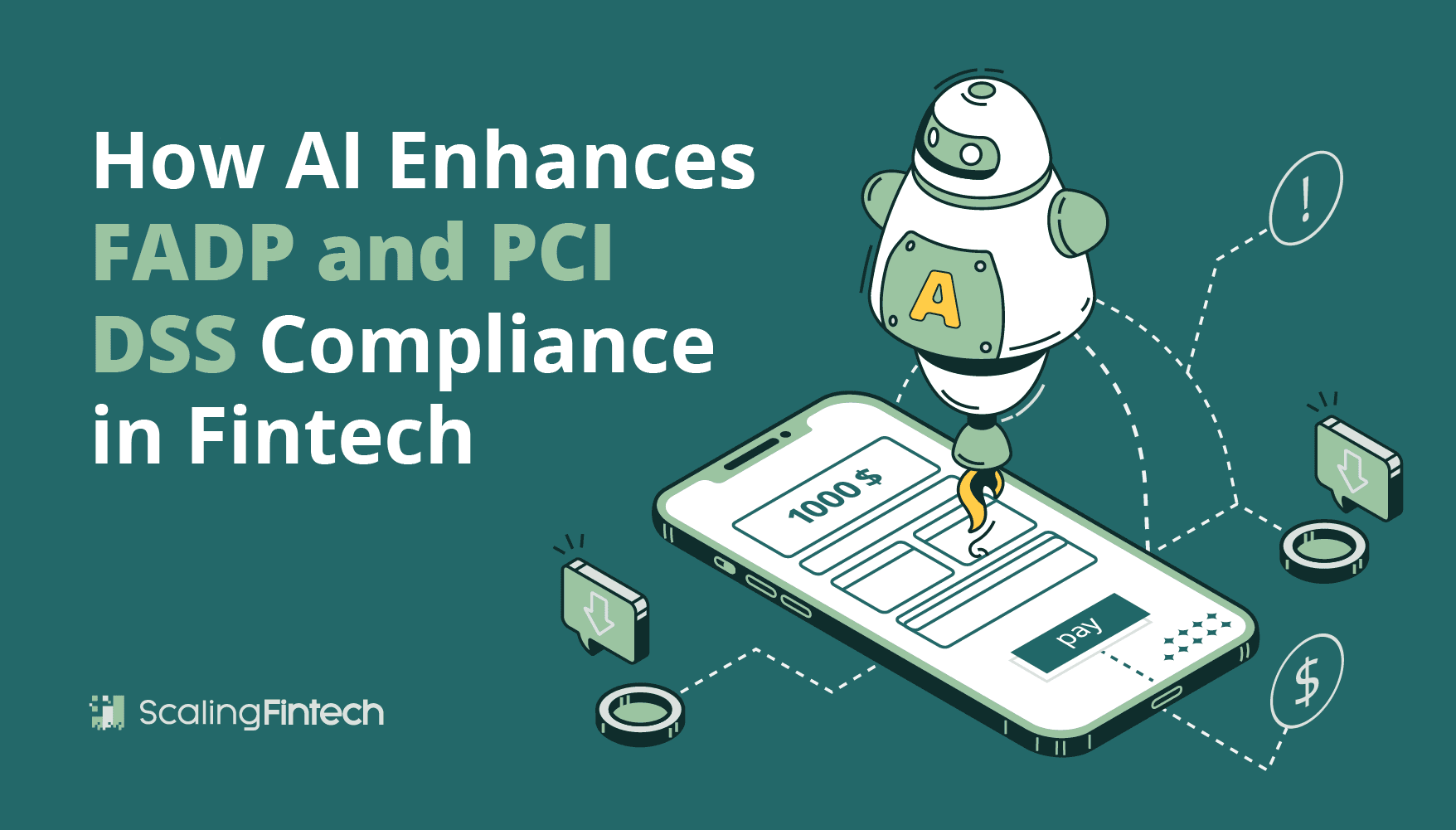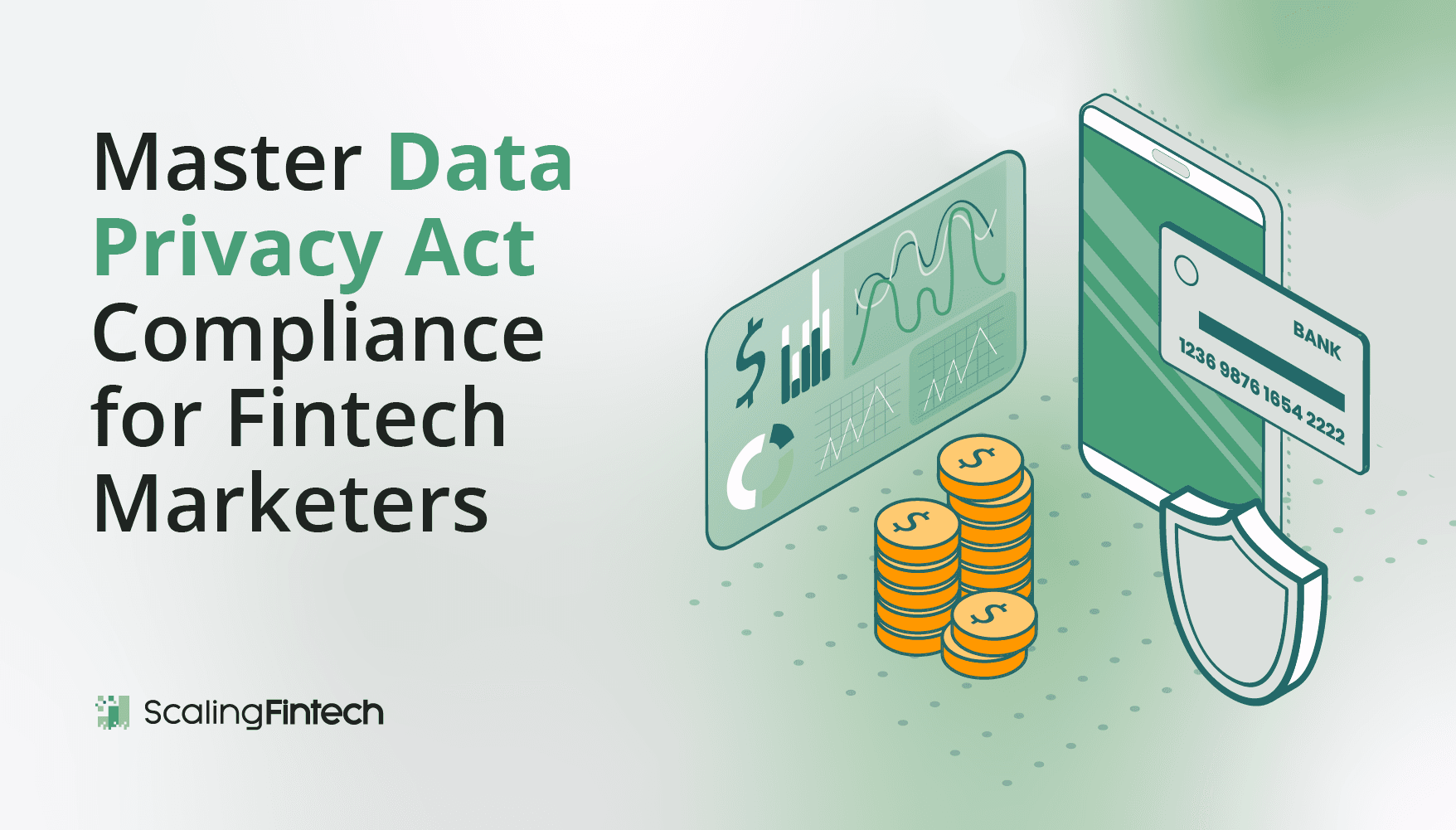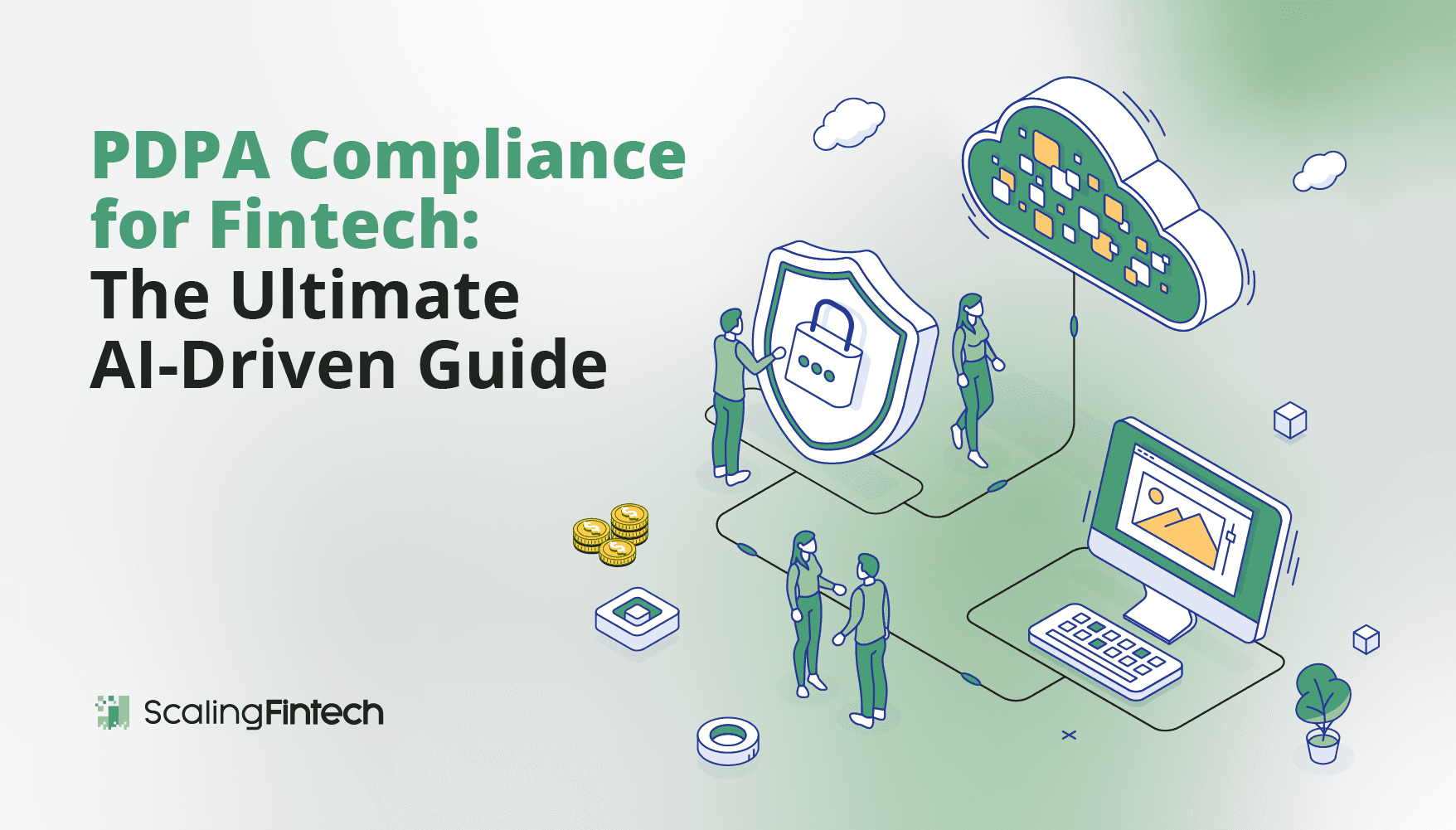Achieve POPIA Compliance in FinTech using AI. Learn how marketers can safeguard personal information, streamline consent, and improve targeting within legal standards
As data privacy regulations tighten globally, FinTech startups and established companies face new challenges under South Africa’s POPIA (Protection of Personal Information Act). They must balance rigorous data protection standards with effective, personalized marketing while ensuring regulatory compliance. Understanding what POPIA stands for – Protection of Personal Information Act – is crucial for businesses operating in the South African financial services sector.
This guide explores how artificial intelligence in fintech can help FinTech marketers achieve POPIA compliance, protect customer information, and streamline consent management—all while boosting marketing performance.
Understanding POPIA and Its Impact on FinTech
What is the POPIA Act?
POPIA, also known as the POPI Act, is South Africa’s primary data protection law, designed to safeguard personal information. Compliance requires FinTech companies to implement robust data protection measures across marketing and operational functions. The purpose of POPIA is to promote the protection of personal information processed by public and private bodies, introducing certain conditions for the lawful processing of personal information.
Core Principles of POPIA
POPIA’s eight key principles, also known as the 8 conditions of the POPI act, outline how to handle customer data responsibly:
- Accountability: Ensure compliance at all organizational levels.
- Purpose Specification: Collect data only with clear, defined objectives.
- Processing Limitation: Collect only necessary data for the intended purpose.
- Information Quality: Maintain data accuracy and keep it updated.
- Openness: Be transparent about data collection and usage.
- Security Safeguards: Implement strong security protections.
- Data Subject Participation: Enable customers to access and control their data.
- Further Processing Limitation: Use data only for its intended purpose.
Tip: Create a checklist to audit compliance regularly with each principle to ensure your FinTech startup remains POPIA compliant.
Penalties for Non-Compliance
Non-compliance with POPIA has severe consequences, including:
- Fines: Up to 10 million ZAR (about $550,000).
- Criminal Liability: Executives may face up to 10 years of imprisonment.
- Reputational Impact: 75% of consumers are less likely to trust companies with a history of data misuse, harming long-term revenue.
Understanding these penalties for violations is crucial for FinTech companies in South Africa to avoid sanctions and maintain consumer trust.
POPIA-Specific Requirements for FinTech Companies
FinTech companies must address specific POPIA requirements, especially in automated decision-making, data processing, and cross-border data transfers. This is particularly important for fintech companies in South Africa operating within the regulatory landscape set by the South African Reserve Bank (SARB) and other regulatory bodies like the Financial Sector Conduct Authority (FSCA).
| Aspect | Requirement | Impact on FinTech |
| Automated Decisions | Human oversight required | Affects AI-driven credit scoring and marketing. |
| Data Processing | Explicit customer consent | Required for customer insights and personalized ads. |
| Cross-Border Transfers | Adequate data protection needed | Complicates international operations and partnerships. |
Example: AI-driven credit scoring tools must include human verification to comply with POPIA’s requirement for human oversight on automated decisions, aligning with both POPIA and the National Credit Act.
Key Compliance Challenges in FinTech
1. Data Minimization vs. Customer Profiling
While POPIA requires data minimization, FinTech startups often need detailed customer profiles for targeted marketing. AI-powered anonymization can enable safe data analysis without compromising privacy.
Tip: Use AI to anonymize customer data for safe, compliant trend analysis while adhering to POPIA’s purpose of protecting personal information.
2. Cross-Border Data Transfers
POPIA requires that data transferred internationally be protected to local standards, complicating global data management. This is particularly challenging for FinTech startups operating across borders.
Actionable Step: Develop a compliant data transfer policy and maintain a list of approved countries, considering both POPIA and international standards like GDPR. Understanding GDPR vs POPIA can help FinTech startups navigate global compliance requirements.
3. Automated Decision-Making and Data Processing
POPIA mandates human oversight for automated systems affecting customer rights, such as credit scoring and customer segmentation. This requirement aligns with the broader regulatory framework governing financial services in South Africa, including regulations set by the Financial Intelligence Centre (FIC) for anti-money laundering (AML) compliance.
AI-Powered Solutions for POPIA Compliance

AI can simplify compliance by automating complex processes, enhancing information security, and enabling real-time oversight. According to Gartner, AI-powered compliance solutions reduce human error by 30-40%, minimizing data breaches and regulatory fines.
Automated Consent Management Systems
POPIA requires meticulous consent management. AI-driven tools can track and store consent data, ensuring it is used only for authorized purposes, which is crucial for maintaining POPIA compliance.
- Track Consent: Record customer interactions in a centralized system.
- Update Preferences: Adjust settings automatically when preferences change.
- Generate Compliance Documents: Easily accessible for audits.
- Monitor Consent Expiration: Prompt customers for re-consent as needed.
Example: AI consent management can reduce time and cost by 45% for companies with large customer bases, helping FinTech startups manage consent requirements efficiently.
AI-Driven Data Anonymization Techniques
AI-powered anonymization allows FinTech companies to use customer data without revealing identities. Studies show 63% of companies using AI-driven anonymization report better data utility without privacy risks (McKinsey, 2021).
| Aspect | Traditional Method | AI-Powered Solution |
| Speed | Manual review | Real-time processing |
| Accuracy | Error-prone | Consistent and precise |
| Scalability | Limited | Effortless scalability |
| Cost | High per record | Cost-effective at high volumes |
Tip: Use AI for real-time data anonymization, enabling insightful analysis without compromising individual identities, thus adhering to POPIA’s data subject rights.
Intelligent Data Breach Detection and Prevention
AI tools can continuously monitor data access patterns, identify suspicious activity, and prevent data breaches, which is crucial for maintaining cybersecurity and POPIA compliance. This is especially important given the POPIA requirements for data breach notifications.
- Real-Time Monitoring: Analyze data access and usage.
- Suspicious Activity Alerts: Detect and respond to threats instantly.
- Automated Countermeasures: Restrict access for potential threats.
- Detailed Audit Trails: Ensure compliance transparency.
Leveraging AI for Compliant FinTech Marketing
AI enables FinTech marketers to deliver personalized campaigns while respecting POPIA’s privacy requirements. Here’s how:
Personalized Marketing Within POPIA Guidelines
Using anonymized data, AI can deliver relevant, personalized marketing without compromising privacy, aligning with POPIA’s purpose of protecting personal information.
Example: AI can analyze customer behavior trends, enabling segmentation without personal data access. According to Salesforce, companies using AI for segmentation see 20% higher engagement.
AI-Based Customer Segmentation and Targeting
AI helps create precise customer segments while aligning with POPIA’s privacy standards, crucial for FinTech startups looking to grow their customer base.
| Aspect | Traditional Segmentation | AI-Powered Segmentation |
| Privacy Compliance | Manual checks | Automated alignment with POPIA |
| Data Granularity | Limited | In-depth, anonymized insights |
| Targeting Accuracy | Broad categories | Precision targeting within compliance |
| Update Frequency | Periodic reviews | Real-time adjustments |
Tip: Use AI-based anonymization for safe segmentation that meets POPIA guidelines and enhances marketing effectiveness for FinTech startups.
Automated Compliance Checks for Marketing Campaigns
AI-driven tools can verify compliance before campaign launches, checking for consent, data use, and privacy criteria, ensuring adherence to POPIA and other relevant regulations like the Consumer Protection Act.
- Pre-Launch Privacy Checks: Confirm compliance before deployment.
- Real-Time Consent Tracking: Adjust to customer preferences immediately.
- Compliance Documentation: Automated records for audits.
- Privacy Alerts: Detect non-compliance risks instantly.
Actionable Step: Implement AI tools for automatic compliance checks, saving up to 50% of manual audit time and ensuring ongoing POPIA compliance.
How Scaling FinTech Can Help with POPIA Compliance
Scaling FinTech offers AI-driven, data-compliant advertising solutions tailored to meet the unique needs of FinTech companies. Our strategies focus on lead generation, conversions, and sustainable growth, all while adhering to strict privacy standards and data-sharing frameworks set by POPIA and other relevant regulations.
Why Partner with Scaling FinTech?
- Precision: Customized campaigns aligned with growth and compliance goals.
- Transparency: Real-time reporting ensures full visibility into campaign performance.
- Client-Centric Growth: Designed for impact and ROI, putting compliance at the forefront.
Take the next step in safeguarding your FinTech business. Schedule a Compliance Consultation with Scaling FinTech today to explore tailored, AI-powered Ads solutions that ensure secure, compliant, and growth-oriented marketing strategies.
Conclusion
AI enables FinTech marketers to simplify POPIA compliance by automating consent management, anonymization, and data protection tasks. By using AI, companies can achieve compliance, enhance security, and maintain customer trust—all while delivering effective, personalized marketing.
Enhance your compliance strategy. Explore AI-powered solutions with Scaling FinTech to keep your marketing secure, compliant, and growth-ready.
Key Takeaways
- Core Principles of POPIA: Compliance relies on principles like accountability, data minimization, and security safeguards, helping FinTech companies manage customer data responsibly.
- Consequences of Non-Compliance: Fines can reach 10 million ZAR ($550,000), with up to 10 years of imprisonment for executives in severe cases.
- Key Challenges: FinTech companies must balance data minimization with profiling, manage cross-border transfers, and maintain human oversight in automated decisions.
- AI Solutions:
- Consent Management: Automates tracking, updates, and compliance documentation.
- Data Anonymization: Allows safe data analysis without revealing identities.
- Breach Detection: 24/7 monitoring and real-time security response.
- POPIA-Compliant Marketing: AI enables targeted marketing that respects privacy.
- Leveraging AI for Growth: Partnering with providers like Scaling FinTech delivers AI-driven, compliant, growth-focused marketing solutions.

Frequently Asked Questions (FAQs)
Who needs to comply with POPIA? All organizations processing personal data, including FinTech companies, must comply with POPIA. This includes understanding the POPIA act in simple terms and implementing necessary measures for regulatory compliance.
What are the requirements for direct marketing under POPIA? POPIA requires explicit customer consent for direct marketing, which must be recorded and managed. This aligns with the broader purpose of POPIA to protect personal information.
What are the penalties for non-compliance with POPIA? Fines can reach 10 million ZAR ($550,000), and company officers may face up to 10 years in prison for serious violations. Understanding these penalties is crucial for FinTech startups in South Africa.
How effective is AI for POPIA compliance? AI compliance solutions can reduce manual error rates by 30-40%, according to Gartner, making them highly effective for maintaining POPIA compliance and overall regulatory compliance.
How does POPIA compare to other international data protection laws? While POPIA is specific to South Africa, it shares many similarities with international standards like GDPR. Understanding GDPR vs POPIA can help FinTech startups navigate global compliance requirements.
What role does the Information Officer play in POPIA compliance? The Information Officer is responsible for ensuring the organization’s compliance with POPIA, including overseeing data protection strategies and serving as a point of contact for data subjects and the regulatory authority.
How does POPIA affect digital payments in South Africa? POPIA impacts how FinTech companies handle personal information in digital payment processes, requiring strict data protection measures and explicit consent for data processing. This also relates to PCI compliance in South Africa.
What are the key differences between POPIA and POPI? POPIA and POPI refer to the same act. POPI is the Protection of Personal Information Act, while POPIA stands for the Protection of Personal Information Act. The terms are often used interchangeably in discussions about data protection in South Africa.
How does POPIA interact with other financial regulations in South Africa? POPIA works alongside other regulations like the Banks Act, National Payment System Act, and anti-money laundering (AML) laws to create a comprehensive regulatory framework for FinTech startups in South Africa. This includes oversight from bodies like the South African Reserve Bank (SARB) and the Financial Sector Conduct Authority (FSCA).
What are the data breach notification requirements under POPIA? POPIA requires organizations to notify the Information Regulator and affected data subjects of any data breaches that may result in identity theft or other significant harm, as soon as reasonably possible. This is a critical aspect of POPIA compliance and overall data protection strategy.




